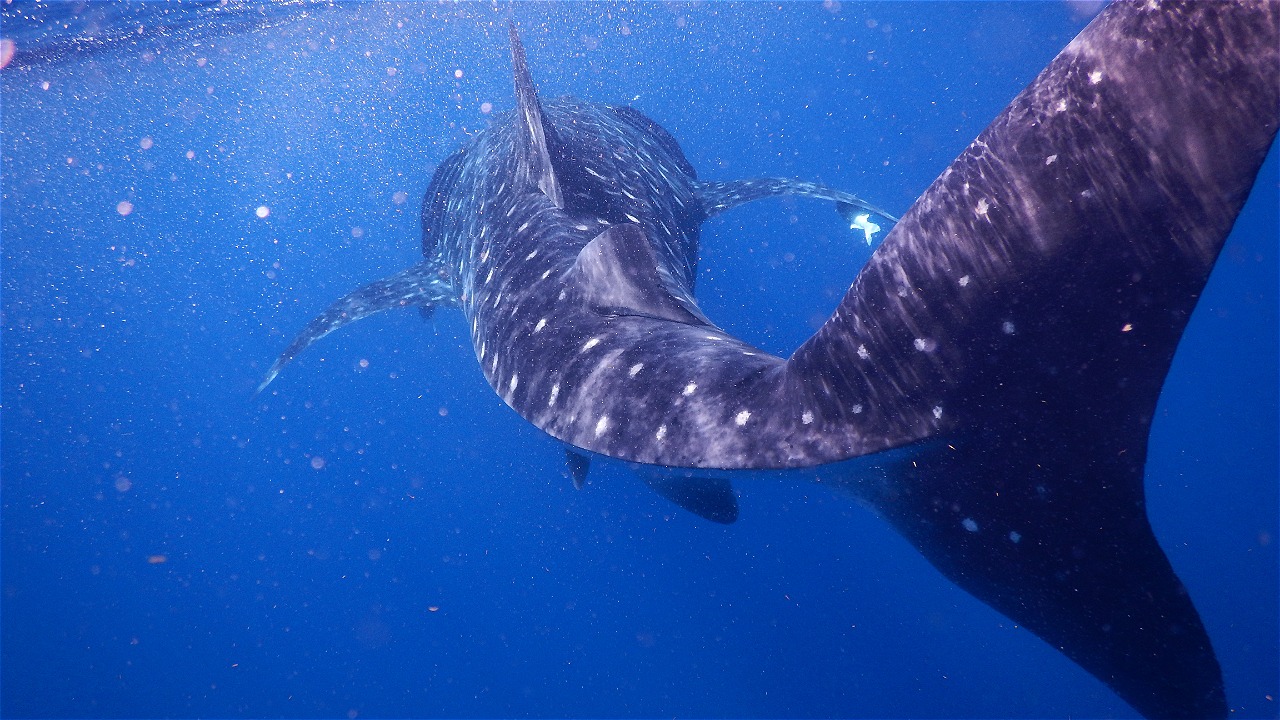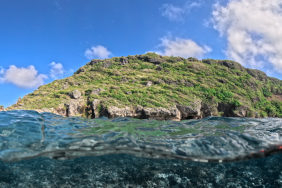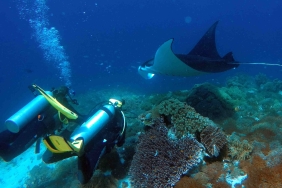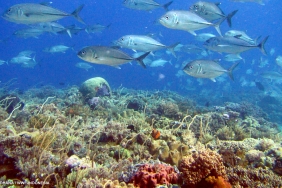ENCOURAGING TOURISTS AND MARINE TOURISM OPERATORS TO BE FRIENDLY WITH MARINE ANIMALS
Jakarta - When traveling to the sea, many of us are still not aware of the impact of our behavior on marine resources, especially marine animals. If tourists are unable to choose a marine tourism package that is operated wisely and environmentally friendly, it could be that the pleasure of tourists actually leads to bad luck for marine animals.
Marine tourism is indeed the foundation of tourism development in Indonesia, the Ministry of Tourism targets a foreign exchange target of 4 billion US dollars in 2019. As much as 60% of marine tourism is beach tourism, 25% is seascape tourism such as cruise, yacht and 15% is underwater tourism, namely snorkeling and diving.
In their activities, tourists are often very happy to observe and interact at close range with marine animals such as seabirds, turtles, and dolphins. Observations and interactions carried out without considering their sensitivity to disturbances can cause behavioral changes, injuries and even death. There are frequent cases of marine animals being injured and killed by boat propellers. Excessive animal observation can also cause stress to the mother, resulting in the separation of the mother from her young, which will reduce the survival of the young.
In order for marine tourism to continue to be enjoyed and provide socio-economic benefits for communities and businesses, WWF Indonesia published a guide entitled 'Observing and Interacting with Marine Animals'. This guide is worth reading as a mandatory reference for tour operators and tourists.
Tourists will get practical tips on how to behave wisely, friendly and responsible as tourists for the community, the sea and its ecosystems. By understanding this guide, tourists will have information on how to choose tour operators and packages that do not threaten the decline of animal populations or damage to marine ecosystems. In the guide, tour operators are reminded of the aspects that need to be considered so that marine tourism organized does not have a negative impact, for example, boat operating techniques in terms of speed and distance for marine animal observation and interaction.
"The marine ecosystem is a vital object in the marine tourism business. WWF Indonesia hopes that with this guide, both tourists and tour operators will be able to practice responsible tourism activities, to curb the rate of degradation of marine ecosystems due to human activities," said Imam Musthofa, Sunda Banda Seascape (SBS) and Fisheries Leader, WWF-Indonesia.
The guide was symbolically launched to coincide with the National Wildlife Day (HCPSN) which falls every November 5, and is part of the #BeliYangBaik Campaign.
Efforts to increase tourism business in Indonesia are an opportunity to strengthen marine ecosystem conservation when accompanied by education of tourism actors to be more concerned about a more ecological lifestyle when enjoying the beauty of the sea and interacting with marine animals in their natural environment.
-o0o-
For more information, please contact:
Indarwati Aminuddin, Marine Tourism Coordinator, WWF Indonesia
Email: iaminuddin@wwf.or.id, Hp: +62 853 4419 9494
Noverica Widjojo, Sunda Banda Seascape Communication and Campaign Coordinator, WWF Indonesia
Email: nwidjojo@wwf.or.id, Phone: +62 812 1958 1985
Note to Editor:
The WWF Responsible Maritime Tourism Guidelines were developed based on the WWF-Indonesia maritime tourism team's learning with academics and practitioners in a number of WWF-Indonesia working areas. In addition to the marine wildlife viewing and interaction guide, WWF also published five other guides related to reducing ecological footprints including waste and garbage management, water management, energy saving, responsible recreational boat management, and interacting with local communities to promote responsible tourism ethics. Visit https://wwf.id/id/blog/berwisata-perlu-bijak-dan-ramah-lingkungan





